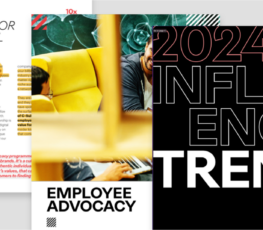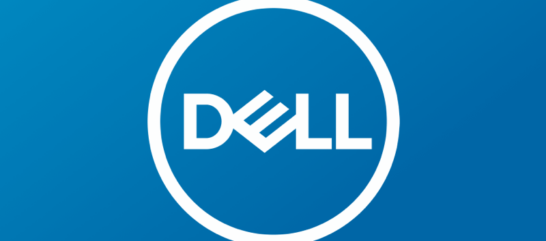“Authenticity is an overused word…”
How do you balance the need for personal branding and employer branding? According to Senior Social Media Manager Sabrina from Okta, authenticity is still the answer.
Specifically, content from your personal side lands best when it speaks to your followers.
This is the kind of authentic success Sabrina has facilitated while managing social at several top companies including Apple, Salesforce, and HBO. Now at Okta, the world’s leading independent identity provider, employee authenticity still takes the content cake.
And yet, B2C hasn’t warmed up to employee advocacy in the same way as B2B has with many success stories to show for it.
So, why?
Okta’s Social Media Senior Specialist Linden points out: a brand message has over 500% greater reach than compared to official brand messaging. With a coefficient that big, why would any company hold back on activating their employees to share authentic content on social media?
Good question. What we know for sure is that people want to hear from people, and that’s only becoming more true here in 2023.
Linden, Sabrina, and Cameron cover:
- What B2C is missing out on
- Okta’s “not siloed” social strategy
- How employees create resonant content
- Breaking the wall between brand and audience
- Giving employees ownership of their social voice
- Promoting company initiatives with your people
- Transparency and executives on social
- How the pandemic changed social media
- Should you invest in advocacy this year?
- Okta’s social goals and tactics right now.
- And much more…
Watch the Full Episode
Three valuable takeaways:
Key takeaway 1: People trust people
Of the many changes in social media over the past few years, allowing followers to see behind the curtain is increasingly expected.
The previous imperative of production polish is out, and the aesthetic of authenticity is in.
This is great news for brands hoping to connect with their followers as it means everyday employees can make an impressive impact on social media with meaningful results.
Linden explains the importance of humanizing content. 🎧🎚⏬
How is it that brand messages reach 561% further when shared by employees versus the same messages shared via official brand social channels? The same reason content shared by employees receives 8x more engagements than content shared by brand channels. (Social Media Today)
There are many amazing statistics like these that reinforce the power of employee advocacy but as Linden knows: social media success depends entirely on trust.
IDEA: Off the pod-record, I suspect the trust professionals build with real “verified” people on social media will become increasingly imperative given the emergence of AI across the board.
Speaking of artificial general intelligence, the future is surprisingly here! But hoping that customers simply trust your brand moniker was last century’s ad tack.
Nowadays, your followers, advocates, prospects, and customers are almost certainly engaging with your people first.
Just as we all have to increasingly “Confirm Humanity” as individuals online, so must brands confirm their humanity now by putting their people first.
Key takeaway 2: Find your niche
You don’t have to be a trending micro-influencer to create value.
Because most of us are not going viral daily, there’s always the temptation to feel like an imposter when thinking about sharing content that pertains to your profession and job.
Who am I to sound like a thought leader? What do I really know, in a new role, crossing lanes, insecurities and all?
Sabrina reassures us: that’s a great place to start.
As mentioned above however, more than ever people want to see the reality of a company’s culture – the people and ideas on the inside devoid of pretense.
Listen how a former developer found their content niche. 🔊🔛👇
Speaking of professionals who have found their content niche after pivoting their careers, two former architectural designers have had tremendous success building a social cadence into their routine.
Sophia Panova (founder of SO-ZHA) and Jake Rudin (founder of Out of Architecture) regularly garner huge engagements from architects by posting niche architectural content, even though they have both moved on from that professional practice, properly speaking.
That’s just one example that comes to mind, but no doubt when you see someone regularly making a splash on LinkedIn, it’s not only a result of them knowing their niche, but that niche might come from a previous chapter in their career!
What previous experiences of your own could constitute a niche follower-focused social content strategy?
It’s worth thinking about!
Key takeaway 3: Advocacy for brands of all sizes
“End of the day, you are telling a story on social media, and having your employees tell that story is so powerful.”
Sabrina has had the unique experience of seeing how employee advocacy scales. Just as effective for small organizations as enterprise corporations, advocacy’s returns are not linear however thanks to network effects.
Advocacy delivers significant earned media value and ROI no matter how small your team might be. But when implemented at scale the combined reach and engagements of an enterprise advocacy program compound with unparalleled benefits to the brand and advocates.
NOTE: 76% of individuals surveyed say that they’re more likely to trust content shared by “normal” people than content shared by brands.
How do Apple, HBO, and Salesforce benefit from social media? ☝️🔊🆙
If you’re listening to this and thinking, those are massive brands with a lot of employees, don’t overlook Okta where Sabrina and Linden currently leverage employee advocacy.
As both social media veterans mention in the podcast, their goal is to double down on advocacy. Specifically, ensuring that employee advocacy is part of onboarding, with more special training, and evangelizing the power of advocacy throughout the entire company.
Related to employee advocacy, Okta also activates customer advocates as well!
Whether you’re in B2C or B2B, learn more about the foundational value and future importance of employee advocacy and why everyone’s an influencer.
Thanks for checking out this week’s Social At Scale episode, and until next time, happy sharing!















